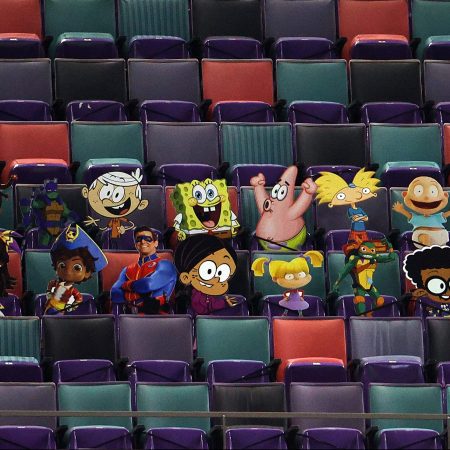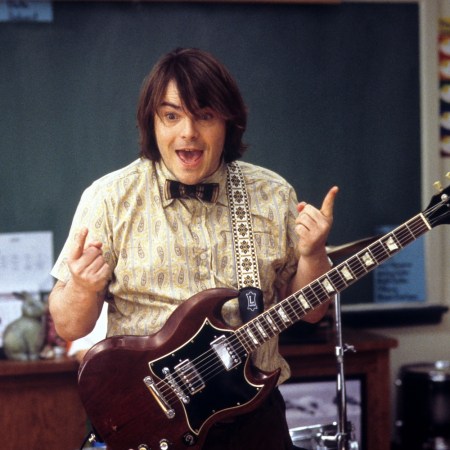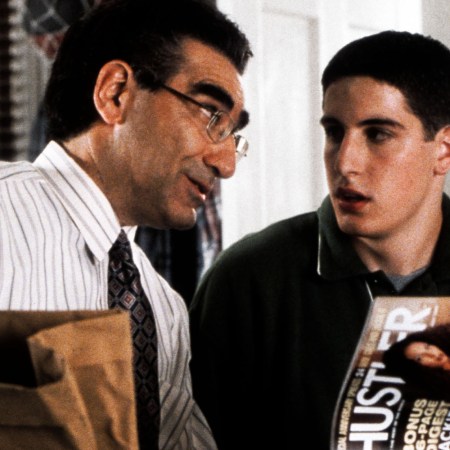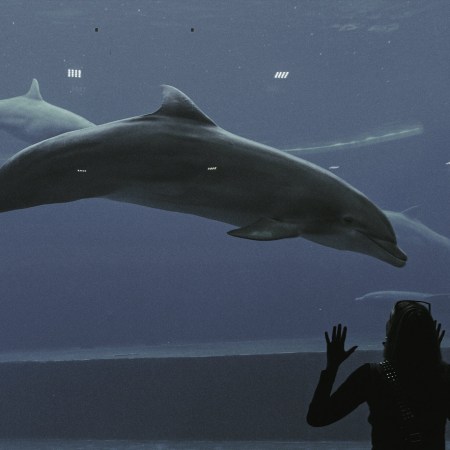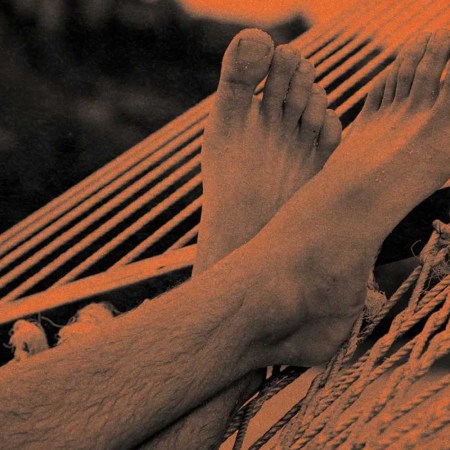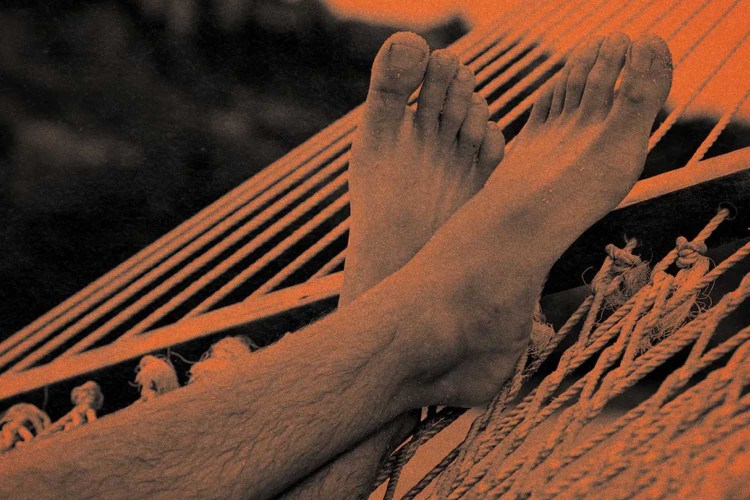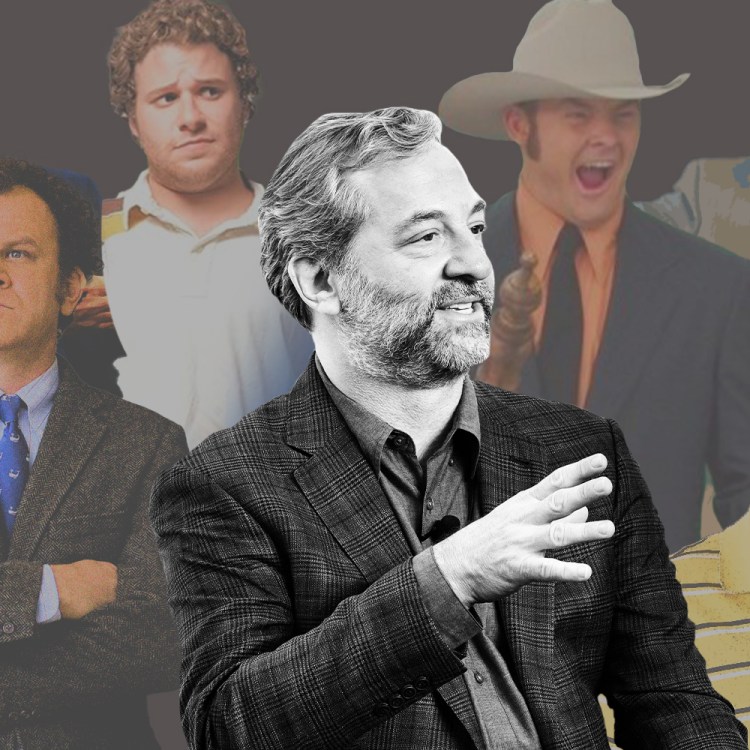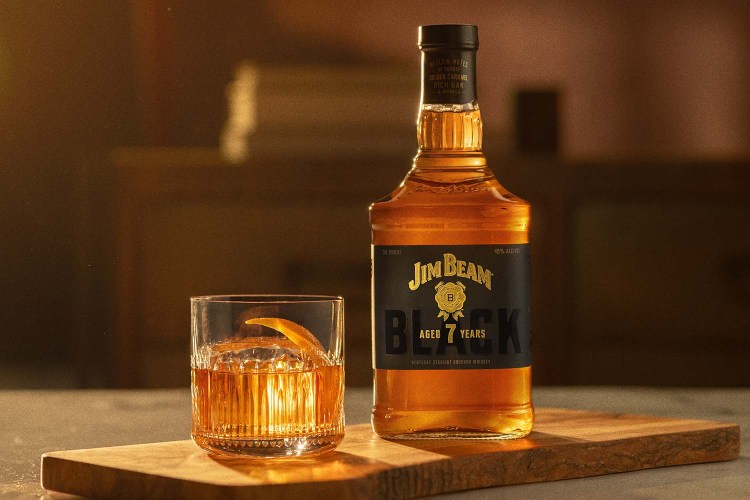There’s a certain vulnerability conferred on a man who, half-reluctant and half-impish, agrees at a crowd’s behest to remove his watch and sneakers on camera so he can slide headfirst into a massive pool of whipped cream topped with a cherry-red beach ball. He lands with a satisfying splosh, flips over to do a quick backstroke motion, and then emerges head-to-toe covered in the stuff. It’s dense. He has another 20 minutes of television show to host while caked in white, pausing often for a high-pitched chuckle at himself and the situation.
That was early-’90s Marc Summers on Nickelodeon’s What Would You Do? At age 72, 2024 Marc Summers is hardly different. He’s a little more outwardly game, maybe, and thus a little less playfully reluctant. He’s also just as charming and quick-witted, in a way most game-show hosts this side of Trebek and Barker could never even hope to approximate.
In The Life and Slimes of Marc Summers, a one-man off-Broadway show that opened in Manhattan on Feb. 22 and runs through June 2, the Double Dare and Food Network veteran builds on that vulnerability and trust with audiences. Originally conceived of as a musical, the part-memoir and part-interactive game show with understated musical elements lives up to its billing. It’s silly, stupid fun — the kind that makes you want to drop everything to be your silliest, stupidest self. And yet the show is also a raw, heartfelt look at what it’s like to live with mental and physical illnesses.
“I think it’s the right time and the right place for this particular show,” Summers says. “It’s a combination of nostalgia and people coming off of COVID. … Whatever it was I was doing and Nickelodeon was doing [in the ’80s and ’90s], it put a smile on their face and let them be who they were. And I think with all the mishegoss going on in everyone’s lives these days, it puts them back in that frame of mind.”
The genesis of Life and Slimes came about in 2011, when Summers met composer Drew Gasparini on the set of a summer Grease production on the Jersey Shore (the former played radio-show announcer Vince Fontaine, and the latter nerdy student Eugene Florczyk). Summers had long harbored a dream of making it to Broadway. He’s finally close at an intimate, 199-seat New World Stages theater. Gasparini, whose writing partner is Tony-nominated actor Alex Brightman (School of Rock, Beetlejuice), connected the two after he bonded with Summers in Jersey. The trio still forms the core of the show, which debuted in 2016 in Bloomington, Indiana — Summers is a native Hoosier — along with director Chad Rabinovitz.
Millennials Are Taking Over Hollywood, And They're Bringing the '90s With Them
After a decade of ’80s reboots and homage, the return of the grunge era is nigh“I said I wanted to do a one-man show,” Summers recalls, “and [Brightman] said, ‘You could never do a one-man show. You’re not compelling.’ I said, ‘You don’t know who the hell I am.’ And he said, ‘Well, tell me.’”
So Summers took Brightman and Gasparini out to dinner regularly for about a year and a half, where they recorded his life stories and began to imagine a script and score. To lighten up what were often tough conversations, they’d probe about things that’d make Summers laugh, like when he had sex for the first time. (A crass but clever joke was ultimately cut from the show.) Gasparini’s music shines in the end product, which Rabinovitz calls “an anti-one-person show.” Gasparini says, “It became really fun to just glue these little themes throughout, rather than sitting there and John Williams–ing my way through this.”
While a game-show format provides the structure of Life and Slimes, Summers’s well-documented OCD became its through line. From a young age, he tells the audience, he kept his room hyper-neat. This parlays nicely into the first game, where a couple of audience members chuck balls of socks behind their heads to crew members holding baskets across the stage. The loser, naturally, is punished via pie to the face.
As Summers grew up, he obsessed over cleaning. He’d straighten rug fringes in his home over and over again, even in the middle of the night. He endured unrelenting self-talk that convinced him if he didn’t tidy up constantly he’d die. Or maybe his parents would die, or his kids would die. At the same time, when Nickelodeon’s cameras were rolling, Summers was all in. After a pristine first 65 episodes of Double Dare, in which the mess stayed confined to the children, in many later installments he was often dripping in god-knows-what, his brown hair mussed lovingly by his faithful assistant, Robin Russo née Marrella (whose daughter, Casey Rae Russo, is a production assistant in Life and Slimes). Belly-laughing, always, the two of them.
When the cameras stopped, however, Summers was all stomachaches and anxiety. He needed to get clean, and fast, but he has no regrets: “I had always wanted to host a TV show,” Summers says. “And I wasn’t going to say, ‘Hey, I’m not going to do that TV show because there’s chocolate pudding on it.’ No!”

As soon as Summers realized his symptoms lined up with OCD and disclosed that on national television, his parents didn’t speak to him for a year. He also lost a hosting gig on Hollywood Squares after promos had already been taped. The news that he had been fired was broken to him by Chuck Woolery, he says, not the show or network via his agent.
And that ground is covered (minus the Woolery tidbit, which Summers told InsideHook) before Life and Slimes arrives at the Soupy Sales protégé’s near-death experiences of this century. Summers has survived chronic lymphocytic cancer three times. It’s now in remission again. He’s also lived to tell about a cab hydroplaning on I-95. He wasn’t wearing a seatbelt when he crashed. Remarkably, he finds the humor in all this.
In fact, if anything, Summers finds too much humor, if there is such a thing. He’s over-eager to poke fun at himself, to revisit those rumpled fringes of his life that’ll probably never smooth, perhaps holding out hope that this time they finally might. He takes care to establish with the audience that he was only ever a second-rate standup comedian. Summers cracks that he’s no Robin Williams, his contemporary, but isn’t that an impossibly cruel measuring stick? (Later, he teases himself about having once been a smoked-salmon salesman — though that particular dig seems utterly justified.)
Acting out dramatized versions of what living with OCD is like, Summers says, has required reliving the worst moments of his mental illness, and those moments were grueling for him to perform on opening night. He got choked up at times and felt tears drip. But the work paid off, because it’s those parts of his story that provide much-needed depth to the show.
“How do you find something that is deeper than just one moment on stage and straightening a rug? How do you bring that to life?” Rabinovitz asks. “Because otherwise you have a 72-year-old man sitting on the ground. It’s not a very theatrical moment.”
In a good way, the show is more than a little surreal. Remember, these painful stories and quiet revelations are interspersed with Summers’s signature Double Dare antics. There are pies catapulted into audience participants’ oversized pants. And thanks to a separate bit, the ticket-buying service warns of the possibility that “stray milk” could land on (un)lucky spectators in the first two rows.
For Rabinovitz, Summers’s whimsy gives way to a larger point.
“He is literally an icon of a generation,” Rabinovitz says. “I think we see him for one thing. Many of us grew up with him. He embodies or personifies having fun as a kid. … But what I love about this show is that it twists that a little to let you know that his true legacy is he’s a man who doesn’t take no.”
Summers says while Life and Slimes isn’t just another gig to him, he also isn’t viewing it in the way many idolizing audience members might, as a capstone project representing a storied television career.
“I don’t ever think legacy,” Summers says. “Frank Sinatra was the biggest star in the world, and now nobody knows who he is. So unless you’re Benjamin Franklin or somebody like that, there is no legacy. There is a period of time that you’re around, and then people remember you for a certain period of time, and then, you know, it’s who’s that?”
Counterpoint: The slime and pie and the accompanying down-for-anything attitude have already left a permanent mark on our culture — just spare the sneakers, please.
This article was featured in the InsideHook newsletter. Sign up now.


